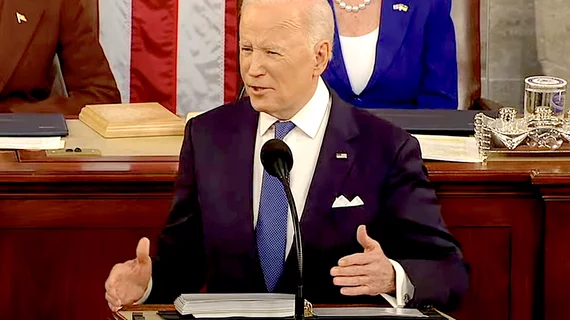Wartime powers enacted to address nationwide IV fluid shortage
The wartime powers provision of the Defense Production Act have been invoked to address a growing shortage of IV fluids and supplies caused by damage to a Baxter production facility in North Cove, North Carolina.
The damage from Hurricane Helene was extensive to North Cove and the broader Asheville region, with heavy floods contaminating manufacturing equipment and washing out roads, leaving the Baxter plant nonoperational.
Recovery is underway. However, as the Baxter facility produces 60% of the IV bags used in the U.S., competitors have been unable to keep up with the supply chain disruption.
The Biden administration said it is using wartime powers to get the facility back to full capacity and to ramp up alternative means of production. CBS News was the first to report the news, citing an official with the Department of Health and Human Services (HHS).
"Ensuring people have medical supplies they need is a top priority of the Administration. It's exactly why we are working closely with Baxter to support cleanup and restoration of the facility, including invoking the Defense Production Act to help production resume as quickly as possible," the HHS official told the outlet.
The U.S. Food and Drug Administration (FDA) recognized the shortages last week, with extra emphasis placed on seven IV fluids, including dextrose, sodium chloride, sterile water and dialysis fluids.
With FDA approval, Baxter announced it has begun importing IV fluids from its international plants in Canada, China, the U.K. and Ireland. The company also said it's released any stored products remaining in inventory, after ensuring they were safe for use in a hospital setting.
At present, a survey from group purchasing organization Premier estimates 86% of providers are experiencing IV fluid shortages. The FDA and Baxter both have recommended rationing available IV bags to prioritize critical and pediatric patients until supplies stabilize.
Baxter is providing regular updates on the status of the North Cove plant on its website, which you can find here.

